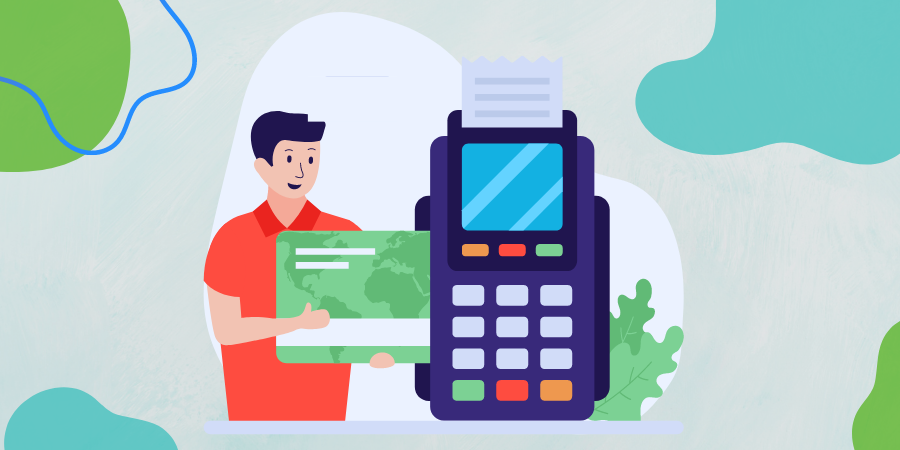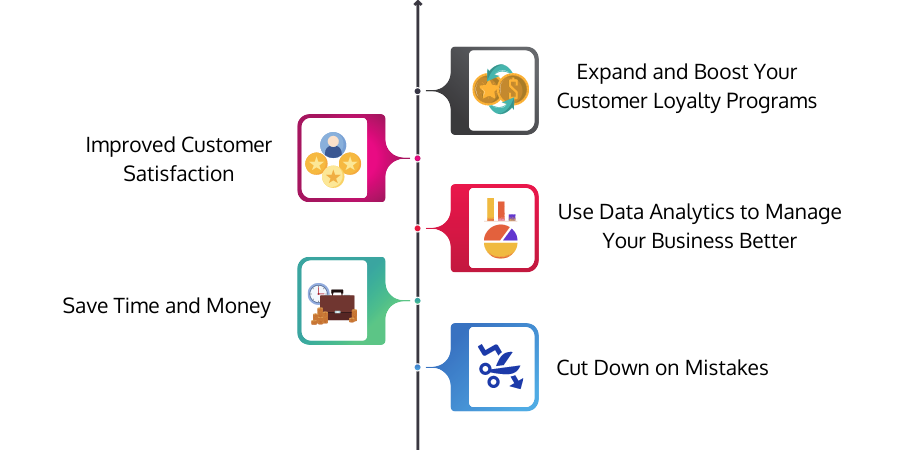
It should come as no surprise that modern hospitality and retail businesses are under increased pressure to embrace new technologies. Unfortunately, in a fiercely competitive industry, the companies that don't invest in emerging technology and look for new ways to improve often find themselves left behind while their rivals get ahead.
Investing in modern technology isn't just about having the latest gadgets but rather opting for tools that make a real, measurable difference to success. That could mean saving money, speeding up productivity, and increasing sales. And that's where ePoS systems come in.
What is an ePoS System?
You might have seen ePoS written as POS, EPoS, ePOS, or EPOS, but they're all the same thing. Put simply, an ePoS system is an up-to-date version of the classic "checkout till." It's a computerized system used in brick and mortar shops, restaurants, hotels, and other retail and hospitality outlets. The overall goal of an electronic point of sale system is to combine modern software and hardware features to help companies run their business more effectively.Unlike their clunky antiquated mechanical cash register cousins, modern ePoS systems do far more than process sales. They often come with a wide range of features designed to give you increased insight into your operations. ePoS systems today are typically cloud-based and seamlessly integrate card processing across devices. They also work in real-time, syncing up inventory, accounting, analytics, payment options, customer loyalty features, and more.
How Do ePoS Systems Work?
They work much like a traditional till, only with increased functionality because they're hooked up to the internet. So, not only can you process payments, you can access real-time sales reports from anywhere and customize the system to meet your business needs. For example, some businesses integrate additional hardware like touch screens (both iOS and Android tablets or smartphones), receipt printers, barcode scanners, card readers, and cash drawers.
In the past, ePoS systems were mainly used by large hotels and retail giants, but today, they're becoming increasingly common for smaller businesses. Why? In an increasingly digital world, businesses of all sizes benefit from advanced reporting and additional features that cloud-based systems offer.

Benefits of ePoS Systems for Hospitality and Retail
Use Data Analytics to Manage Your Business Better
As we mentioned above, ePoS systems record all sales data and can convey this information to you in reports, graphs, and charts. Having a visual representation of how well your business is performing can help you make better decisions regarding what to sell and when. Additionally, with ePoS systems, warehouses can better predict peaks or falls in product demand, which helps with inventory management.
Improved Customer Satisfaction
One of the significant benefits of ePoS systems is that they speed up the payment process, with scanning items and processing payments taking mere seconds. Additionally, because all inventory information is cloud-based and easily accessible, customers can ask staff about product availability and receive an immediate answer. Customers like companies that value their time and make the retail experience fast and convenient in a fast-paced world.
Save Time and Money
ePoS systems remove a lot of the human labor involved in running a business and managing sales. This means you don't need as many employees or can use your staff in other business areas that can't be automated so easily.
Expand and Boost Your Customer Loyalty Programs
ePoS systems collect data that can be taken into account for your customer loyalty programs. For example, when you create a loyalty card, you take personal information about the customer, like their name, gender, age, occupation, marital status, and so on. Then, when the customer uses this card when they purchase an item, you can begin to build a more advanced customer profile. Armed with this information, you can offer personalized discounts or offers when the customer is most likely to buy. You can also build customer personas for marketing or creating new products because you have a clearer idea of your customer base and what they want.
Cut Down on Mistakes
Manual processes often involve a much higher margin of error than automated processes, and it's no different for ePoS systems in hospitality and retail. In other words, the more hoops you make your staff jump through to accept card payments, the more chance of mistakes. ePoS systems connected to card machines dramatically reduce errors because you cut the risk of entering the wrong payment amounts - everything is straightforward, and balancing your books becomes a breeze.

 Batoi Corporate Office
Batoi Corporate Office